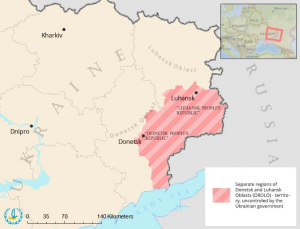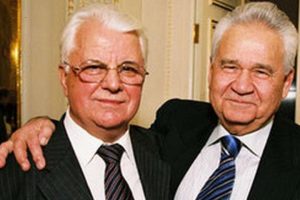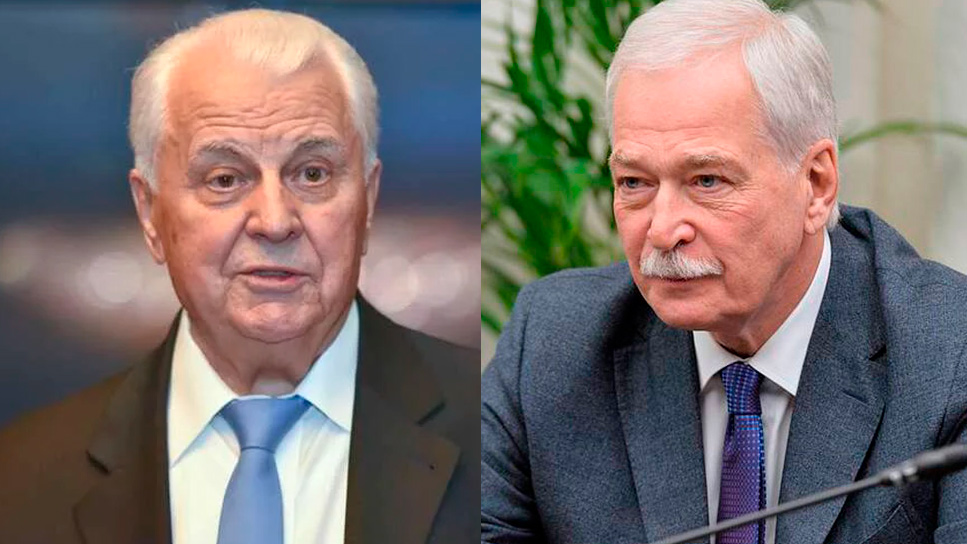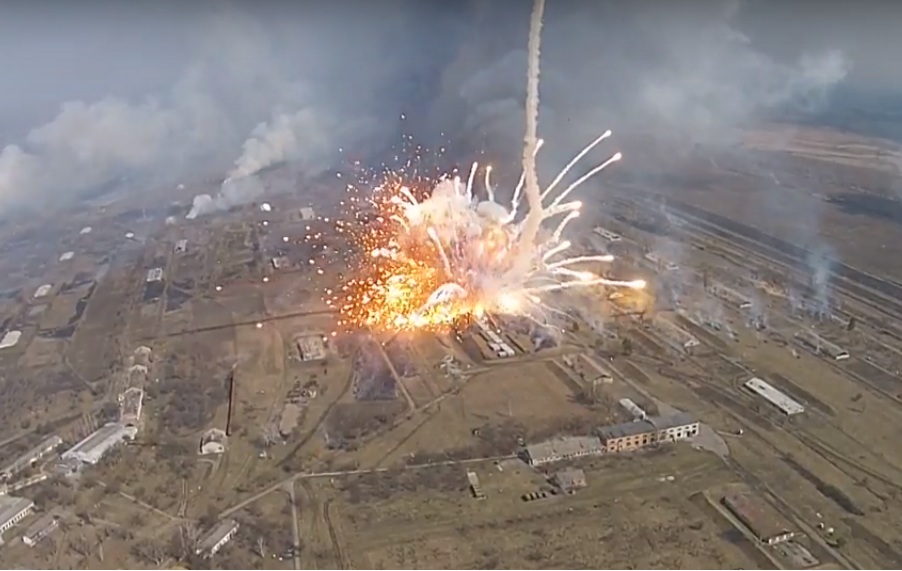As expected, the negotiation process has reached an impasse in the Trilateral Contact Group (TCG, Minsk Group) that tries to resolve the conflict in the east of Ukraine ongoing for more than six years now.
The talks have faced a stalemate in the same way as many times before when Russia resorted to demanding Ukraine to fulfill the points of the Russian agenda yet with no intention to make any concessions from the Russian side.
However, Russia is applying these tactics for the first time during the tenure of President Volodymyr Zelenskyy, who had previously believed that his predecessors were not interested in finding a consensus with Russia to resolve the conflict.
The ceasefire imposed on 27 July has been mostly held in the war zone so far, however, the prisoner swap has been shelved since Russia Ukraine allow the local elections in the occupied territories. Ukraine doesn't seem to be willing to give in to Russia's blackmail, which may eventually lead to a collapse of the ceasefire as it had happened before.
Russia wants Donbas elections
After President Zelenskyy appointed former President Leonid Kravchuk as the chief representative of Ukraine in the Minsk group, the Russian side blocked the negotiation process on 19 August demanding to remove the ban on the local elections in the occupied territories from the Verkhovna Rada’s resolution on the 2020 elections.

Back then, Kravchuk submitted the demands to Parliament and Zelenskyy lauded him, saying that the Kravchuk-led Ukrainian delegation “has completely revived the Minsk meetings.”
The Parliament predictably refused to change its resolution.
For now, Russia's demand remains the same and Russia is pursuing the same strategy as throughout all the previous years of the Minsk talks, which is making a political demand and blocking the negotiation process entirely in order to force Ukraine into making concessions.
Meanwhile, head of the Ukrainian delegation Leonid Kravchuk urges his Russian counterpart, Boris Gryzlov, not to issue ultimatums to Ukraine, not to create "stumbling blocks," but to move forward, focusing on strengthening the ceasefire and releasing the persons held by the parties.
Fokin dismissed from TCG

After controversial public statements that were in line with the Russian propaganda, the Parliament’s State Building Committee summoned Kravchuk’s former prime minister whom he brought to the Minsk group as his deputy, Vitold Fokin, to its meeting.
[box-right]
- Ukraine provides evidence of Russian aggression in Ilovaisk, but Ukrainian command’s responsibility hushed up
- Ukrainian OSINT sleuths release largest existing database of evidence of Russian aggression in Ukraine
- Russian aggression, documented: How official documents reveal Russia’s involvement in Ukraine
- More evidence of Russia’s aggression against Ukraine discovered by digital sleuth as Russia keeps denying its involvement
[/box-right]
Giving his explanations to the legislators on 29 September, Vitold Fokin didn't dispel doubts regarding his pro-Russian position, and even said that Russia doesn't fight against Ukraine in the Donbas,
"As for the war. I am not a politician and I cannot give any definition of this. Therefore, I have not seen any confirmation that there is a war between Russia and Ukraine," Vitold Fokin said to MPs.
Fokin's statements made the Committee initiate the appeal to the President to remove Fokin from the Trilateral Contact Group.
On the same day, head of the Ukrainian President's Office Andriy Yermak wrote on Facebook that he believes that Fokin should resign.
Moreover, the petition on the President’s website demanding to dismiss Fokin was approaching the 25,000-signature threshold.
On 30 September, President Zelenskyy dismissed Vitold Fokin from the TCG by his decree.
Unauthorized recording of talks

On 30 September, the OSCE representative to the TCG, Ambassador Heidi Grau, suspended the meeting of the group held through video conferencing. According to Interfax-Ukraine referring to an unnamed source “related to the negotiation process” from the Ukrainian side, the reason for disrupting the regular TCG meeting was the violation of the confidentiality regime when she discovered that the Russian side has been conducting the audio and video recording of the meeting.
The source stated that Grau proposed taking a break in the work of the TCG to organize an extraordinary meeting for discussing a code of conduct and information policy common for all TCG participants.
In the press statement after the 30 September meeting, Ambassador Heidi Grau didn’t specify the details, however, confirmed that “a lot of time was spent today on procedural issues.”
According to her, among the topics of the next meeting would be the "measures to strengthen the ceasefire" in the Donbas that continues to be effective and has “a beneficial impact on the living conditions of the civilian population” but doesn’t yet have “a positive effect on the activity of the TCG.”
War is going on
As all eyes are now on another post-Soviet conflict, the once frozen Nagorny Karabakh war in Azerbaijan that has now escalated to the full-scale action after 30 years of relative peace and fruitless negotiations, the war in the Donbas still continues despite the largely observed ceasefire.
Core issue of the Minsk negotiation platform
Russia's goal in the Minsk talks isn't ending the war and bringing peace to the Donbas, since Russia end the war and establish peace in the region by withdrawing its forces and ending support for the militants there. This is not happening because Russia needs to have control of the region even after its return under Ukrainian control.
Legitimizing Russia's occupation administrations of Luhansk and Donetsk via Ukrainian local elections is one of the major steps on the way of returning the occupied territories back into Ukraine on Russian conditions.
-
Read also: The quick way to quasi-recognition of Donetsk-Luhansk’s armed formations: a play-by-play account
[box-right]
Minsk-2 is the real problem for Ukraine, not “Steinmeier’s formula” | Infographics
[/box-right]
The representatives of Russia, Ukraine, and OSCE signed the Minsk protocol, the unofficial deal that was meant to de-escalate the situation in the Donbas, in September 2014 after the major Russian offensive in the Donbas that involved regular units of the Russian army. The Package of Measures to revive the Minsk accords was signed months later in February 2015 amid the large-scale Russian offensive on Debaltseve, the main railway hub of the Donbas, and the operation to take control of Donetsk Airport.
After signing the second batch of the Minsk documents, the hostilities largely reduced to trench warfare without serious offensive operations, however, multiple ceasefires regularly negotiated by the TCG were coming to an end after escalations in the warzone to be re-negotiated once again.
As a result, Ukraine has been claiming its commitment to fulfilling the Minsk deal that has never been ratified officially, while Russia keeps insisting that it's not a party to the conflict and wants Ukraine to negotiate directly with the occupation administrations of Luhansk and Donetsk.
Meanwhile, the Ukrainian political prisoners and POWs illegally held in Donetsk and Luhansk prisons remain hostage to Russia’s political agenda.
The prisoner exchange process has been stalled since April when Ukraine exchanged 14 prisoners sentenced anti-Ukrainian activities for 20 Ukrainian citizens who were held captive by the occupation authorities of Luhansk And Donetsk.
Commenting on the last remote meeting of the Minsk group, Ambassador Heidi Grau said,
"The Humanitarian Working Group considered issues related to the mutual release and exchange of conflict-related detainees. The discussion did not bring results. It is unacceptable that political considerations are preconditions for resolving humanitarian issues."
Read more:
The armed conflict in Ukraine’s easternmost historical region of the Donbas made up by Luhansk and Donetsk oblasts started in 2014 soon after Russia’s invasion and annexation of the Ukrainian Crimean peninsula. Since its beginning, the war claimed more than 13,000 lives and displaced almost 2 million people. Russia keeps denying its involvement in the conflict. The occupied territories of two Ukrainian regions are officially known as ORDLO or Certain Areas of Donetsk and Luhansk Oblasts.




